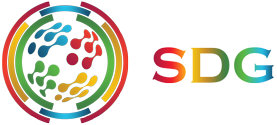Proposed Solution 2
SDG Blockchain
The dedicated SDG Blockchain network controls the type and amount of Pollution Emissions by installing and setting up appropriate control sensors for each industry and provides reports to network users in a transparent manner. It is also possible that in case of the release of pollutants over the environmental standards, the penalty has immediately and automatically been charged to the offending organization. Finally, the corresponding statements are reported to the network users.
Smart Bins can also be installed in Cities and Residential Areas, and tokens are paid as a reward to the network users to help further protect the environment.
The proposed solution could be a more reasonable and transparent Management of the Product Supply Chain by creating and developing a blockchain network. That is, a powerful decentralized and distributable application tracks the process from manufacturing to the sale of an ethical product and transparently distributes product information such as geographical location, production date, and shipping status.
Businesses can create supply chain options that are more environmentally agreeable. For example, encouraging people to buy locally sourced products will reduce long-distance travel and finally Reduce Carbon Emissions.
Executing the proposed solution can be considered to help achieve the results
By 2020, Prohibit Certain Forms of Fisheries Subsidies which contribute to overcapacity and overfishing, eliminate subsidies that contribute to illegal, unreported and unregulated fishing and refrain from introducing new such subsidies, recognizing that appropriate and effective special and differential treatment for developing and least developed countries should be an integral part of the World Trade Organization fisheries subsidies negotiation.
By 2030, increase the economic benefits to Small Island developing States and least developed countries from the Sustainable Use of Marine Resources, including through sustainable management of fisheries, aquaculture and tourism.
